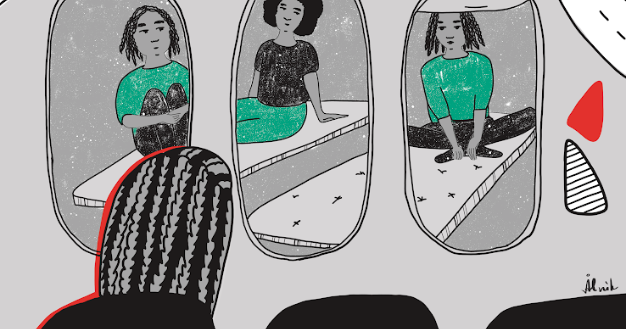
I was met by a woman in her late fifties. She was nice and though fear engulfed me, I contained myself. She told me I was to work in the house of her mother in Tripoli. Before this however, I first had to register at The Office. I was left there for three days with 15 or so other women. We were all African. We slept on thin mattresses spread on the floor. On the first day, I was registered and then we cleaned the office. On the second day, we were told to unbraid and wash our hair. Like the other girls, I washed in the buckets of water provided. When I had finished, I felt a burning sensation all over my face and soon it was clear we were all suffering. We did not know what it was until an Ethiopian girl, who had been in Lebanon before, explained that the water had been treated with pesticide to kill the bed bugs that they believed African girls carry in their hair because they do not wash it often. I was left heartbroken that this was how we were viewed in the eyes of our employers. It is this type of discrimination against black people that hurt me the most.
My first year in Lebanon was the hardest. I had not expected to do this work and it was not easy, rising early every morning to attend to an old woman in her nineties. She only spoke Arabic and I understood that I must learn the language fast to preserve my job. However, when I compare my experience with others I count myself lucky to have found the family I did. Though not perfect, they were fair. I was allowed to speak to my family once a week and after a year, even allowed to have my own phone. I had no day off, but a few free hours on Sundays which I appreciated because other workers I knew had no free time at all.